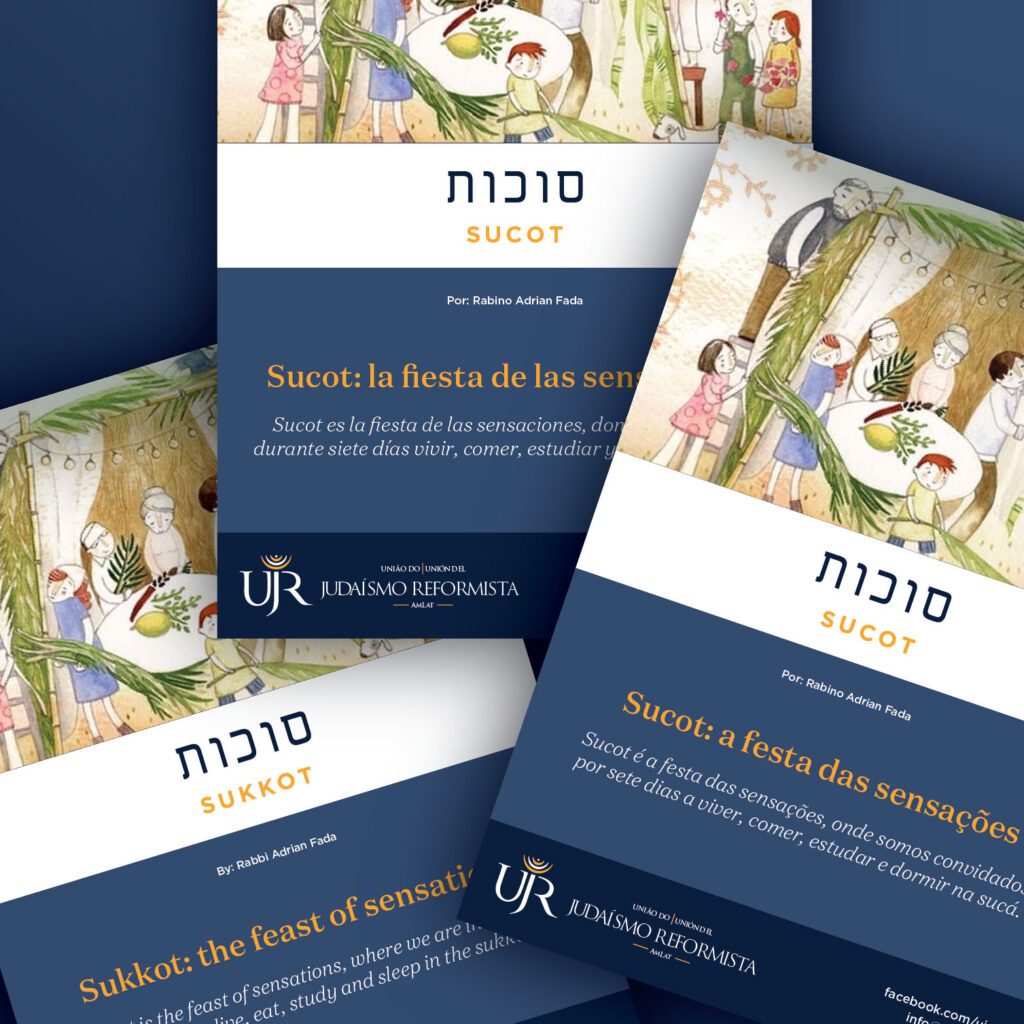Sukkot
סוכות
September 29 to October 6
14 to 21 Tishrei 5784
Rabbi Adrian Fada
Sukkot: the feast of sensations
Sukkot is the feast of sensations, where we are invited for seven days to live, eat, study and sleep in the sukkah.
In the sukkah, reality is more similar than ever, both outside and inside. Nothing changes in our feelings inside or outside the sukkah. If it’s cold outside, it’ll be cold in here, if it rains outside and we get wet, we’ll get wet in here too. In other words, there is no shield or defense possible outside of ourselves and our fellow human beings.
In Sukkot, despite living in an uncomfortable place, we have the habit of hosting visitors, of being able to open our doors and our hearts, of showing ourselves as we are, without disguising or hiding anything, and of giving the best of ourselves.
Martin Buber, one of the great thinkers of the Jewish people, says that there are times when a human being feels at home in the world; and there are times when a human being perceives its existence in the world as if it was completely abandoned, thrown out into the open.
Buber’s statement is certainly palpable at the festival of Sukkot, during which, when we place ourselves under the shelter of the fragile sukkah, we realize the openness, the fragility and, conversely, we value what we have the rest of the time and which, because of its ordinariness and routine, we no longer see as something worthy of being valued.
Our life is like a big sukkah, there are times when we feel fragile, weak, weakened and feel that a simple wind could knock us off our feet. But just by looking at the sukkah, we realize that life, in turn, is something we build with our own hands, where we give it our own touch, our own decoration, where it’s up to each of us how we want to face life.
Sukkot is the holiday in which we are commanded to be joyful: “ve samachta vechagecha”, we should be happy for what we have, for who we are, to value what we do on a daily basis.
May this holiday of Sukkot allow us to be more sensitive to things, to be simpler and more humble in our actions and may each of us discover in the other that inner sweetness which, like the etrog (hard on the outside and soft on the inside), we often hide.
May this Sukkot allow us to open the doors of our hearts so that we can look at ourselves and understand others.
Chag Sameach!
Rabbi Adrian Fada
Jewish Belgrano.
NCI – Emanu el





